Business in Latvia, Riga, Latvian Economy
Latvian Foreign Trade, Logistics. Latvia (Baltic Tiger) high human development
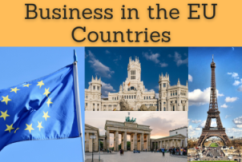
Main Latvian economic sectors are tourism, agriculture, textiles and steel metallurgy
Main Latvian Exports are foods, wood and wood products, metals, machinery and equipment, textiles
Top export markets: The UK, Sweden and Germany
- Introduction to the Republic of Latvia (EU)
- Latvian Economy
- Doing Business in Riga
- Latvian Foreign Trade
- Transport and Logistics
- Investment in Latvia
- Access to the Latvian Market
- Business Plan for Latvia
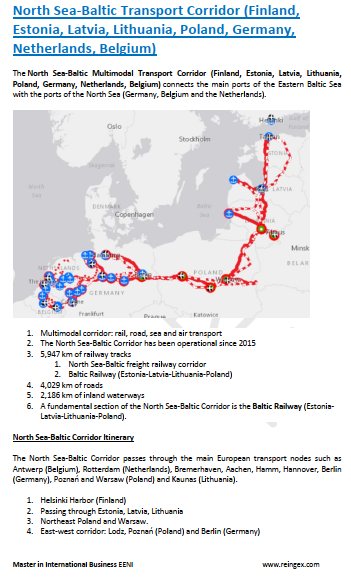

The educational aims of the Subject “Foreign Trade, Logistics and Business in Latvia” are:
- To analyze the Latvian Economy, Logistics and Global Trade
- To conduct research on business opportunities in the Latvian Market
- To research the trade relations of Latvia with the student's country
- To learn about Latvian free trade agreements as a member of the European Union
- To develop a business plan for the Latvian Market

The Subject “Foreign Trade, Logistics and Business in Latvia” is included within the curriculum of the following academic programs at EENI Global Business School:

Masters: International Business, Foreign Trade.

Languages:  +
+  Letonia
Letonia  Lettonie
Lettonie  Letónia.
Letónia.
- Subject Credits “Doing Business in Latvia”: 1

International Trade, Logistics and Business in Latvia

- North Sea-Baltic Corridor (Finland, Belgium)
- Access to the
- Trans-Siberian Railway (Russia, Mongolia, China, North Korea)
- Pan-European Corridor II
- Pan-European Corridor IX
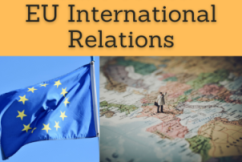

Latvian Preferential Access and Trade Agreements:
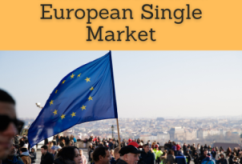
- Latvia and the European Economic Area
- European Union
- European Customs Union
- European Single Market
- The European Union Services Directive
- European Digital Single Market
- As a member of EU, Latvia is a beneficiary of EU Trade Agreements
- Council of the Baltic Sea States
- Regional Cooperation Council
Latvia is an observer country of the Regional Organization for Democracy and Economic Development (GUAM).

- World Trade Organization (WTO)
- Agreement on Trade in Services (GATS)
- Agreement on the Application of Sanitary Measures
- Agreement on Technical Barriers to Trade
- Agreement on Preshipment Inspection
- Agreement on Safeguards
- Trade Facilitation Agreement
- World Customs Organization (WCO)
- Kyoto Convention
- Convention Harmonization of Frontier Controls of Goods
- CMR Convention
- International Chamber of Commerce
- Organization for Cooperation between Railways (OSJD)
- CIM & CIT Rules (Rail Transport)
- COTIF Convention (Rail)
- BIC
- Chicago Convention (ICAO)
- International Maritime Organization (IMO)
- Convention for Safe Containers
- Istanbul Convention
- International Road Transport Union (IRU)
- TIR Convention
- Guidelines on Safe Load Securing for Road Transport
- Customs Convention on Containers - not a member
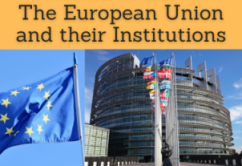
European Trade and Economic Organizations of Latvia
- The European Union
- Economic Commission for Europe (UNECE)
- Organization for Security and Cooperation in Europe (OSCE)

- OECD
- OECD anti-corruption measures
- United Nations
- World Bank
- World Trade Organization (WTO)
- International Monetary Fund
- Asia-Europe Meeting
- Latvian Capital: Riga
- Official Language of Latvia: Latvian
- Latvian Area: 64,590 km²
- Latvian Population: 2 million people
- Type of Government of Latvia: Parliamentary Republic
- Borders of Latvia: Estonia, Lithuania and Belarus
- Independence of Latvia from the Soviet Union: 1991
Religion in Latvia: Christianity.
- Protestantism: Latvian Evangelical Lutheran Church (35%)
- Catholicism (25%)
- Orthodoxy (20%)
Latvia belongs to the European Economic Area.
Economy of Latvia.
- The Republic of Latvia is ranked 21st in the world (Index of Ease of Doing Business, World Bank)
- Latvia, Estonia and Lithuania are the so-called Baltic Tigers
- According to the Human Development Report (United Nations), Latvia belongs to the very high human development countries group
- Latvian Currency: Euro (2014)
- Latvia is a member of EU since 2004
- Headquarters of the Office of the Body of the European Regulators for Electronic Communications (BEREC Office): Riga (Latvia)
- The privatization process in Latvia has virtually ended

Latvian Foreign Trade
- Main Latvian imports: machinery and equipment, consumer goods, chemical products, fuels
- Main suppliers of Latvia: Russia, Germany and Lithuania
- As a member of EU, Latvia is a beneficiary of EU trade agreements with India, Mexico, MERCOSUR, South Korea, Peru, ASEAN, Egypt, Jordan, Lebanon, Ukraine, Moldova, Georgia...
(c) EENI Global Business School (1995-2025)
Top of this page









 WhatsApp
WhatsApp